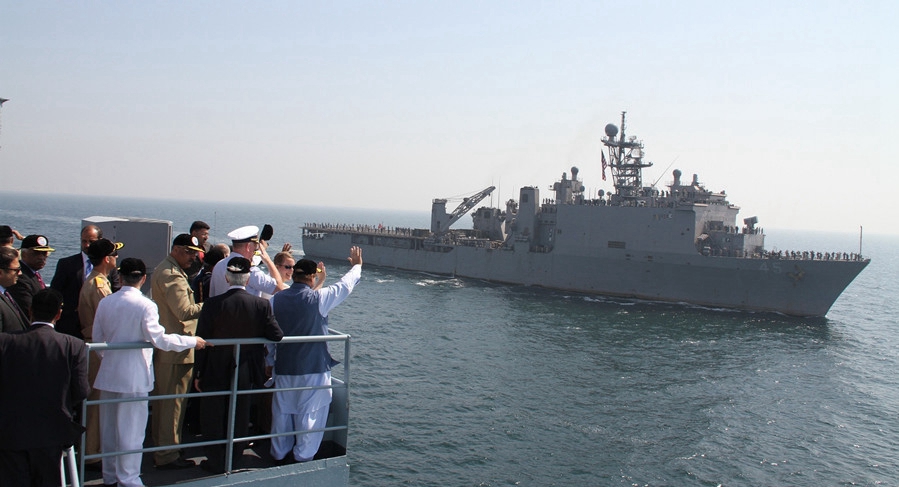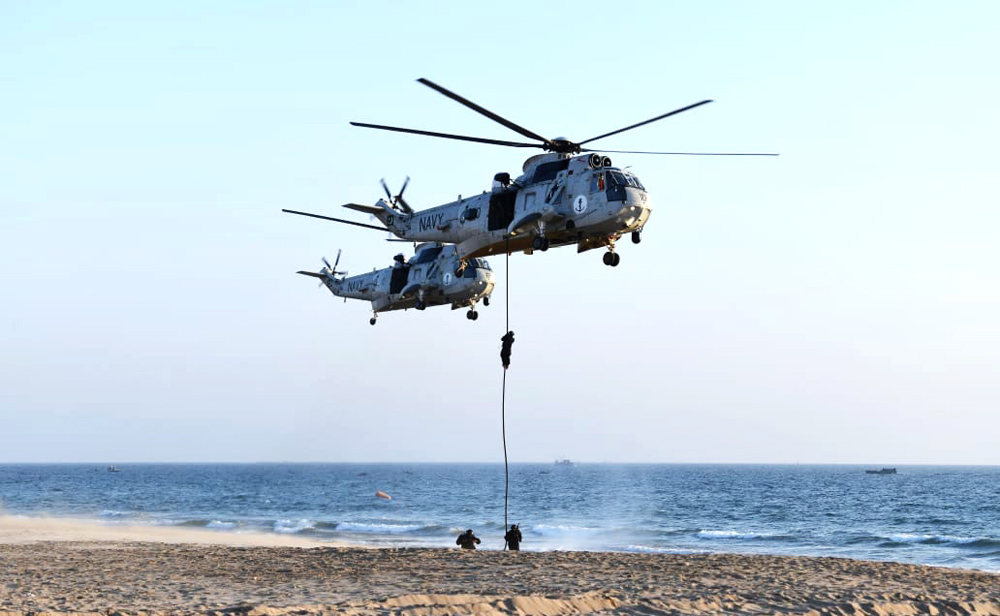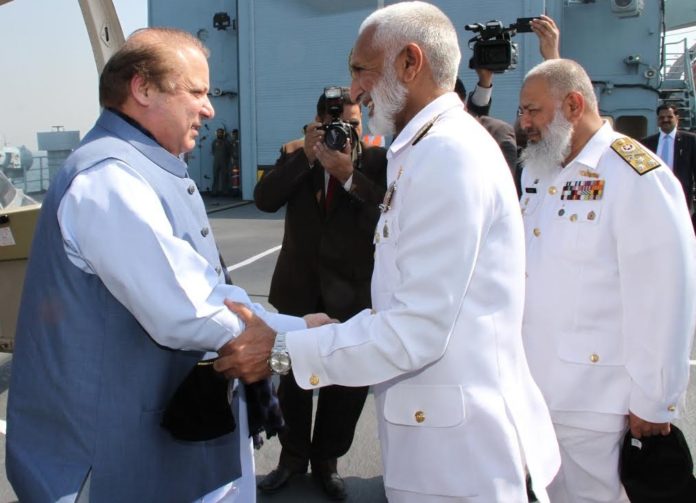The vastness of oceans which count more than two third of the planet earth has witnessed virtual shrinking over the last 2–3 decades. This has been primarily caused due mammoth advancements in naval warfare TTPs (Tactics, Techniques and Procedures), hi-tech mass destruction weapons, long range high definition sensors, robust command, control, communications and Intelligence systems. These advancements on one hand enable a nation-state to pursue its national interests while on the other, imposes restrictions on their free usage due lethal impact. The geo-strategic landscape has also witnessed transformation of threat from traditional to non-traditional ones from non-state actors encompassing piracy, maritime terrorism, marine pollution, gun-running, narco and human trafficking etc.
The advancements in warfare, lethality of weapons and transformed nature of threat makes it difficult for an individual nation to ensure peace and stability in a particular region. Alliances, partnerships, joint operations, coalition forces and multinational Task Forces (TFs) are therefore the right choice in today’s environment to counter and contain contemporary threats while capitalizing on the technological advancements. As per a consensus belief, navies the world over speak the common language of Morse and Flags albeit with minor differences on tactical level. Therefore, a must prerequisite prior to forming up such alliances, TFs or coalition forces is to enhance interoperability between participating nations which conditions the environment for conduct of multinational maritime exercises. These exercises afford opportunities for the mariners around the world to operate together and learn from each other’s experience contributing to the overall betterment of the maritime environment.

The Indian Ocean remained the hot bed of economic, military and diplomatic activities during the latter half of the 20th and most part of the 21st century. Oil exports, invasion of Afghanistan by the Soviet Union in 70s and later by the US led coalition in 2001, Gulf wars, Operation Enduring Freedom and Iraqi Freedom, piracy off the Somali coast, Yemen crisis, rise of ISIS, turmoil in Levant etc. are a few significant ones worth mentioning in this regard. Notwithstanding, as mentioned earlier, the globalised nature of the world has shortened distances and created a homogenous and contiguous ocean space all over the world whereby events happening at one place impacts on the other almost instantly.
Pakistan is located on the cross roads of the world’s most important seaways and has played a pivotal role in maintaining order, peace and stability in the post 9/11 region. The Pakistan Navy shouldered huge responsibilities of policing North Arabian Sea (NAS), active participation in coalitions with assets and human resource and round the clock presence to counter terrorism and piracy at sea. These efforts stretched relatively lesser resources of PN, however still could not affect the resolve of the leadership who saw the dividends of this participation well in advance.
Thus, in pursuance of common goals of peace, harmony, good order, stability and continuous use of important SLOCs for economic purposes, the Pakistan Navy has worked hands in glove with other regional and extra regional actors. Today, PN ships, submarines and aircraft maintain round the clock presence in the Gulf of Aden (GoA), GOO and NAS for achievement of these goals. In addition, PN has started various initiatives to enhance interoperability among the regional and extra-regional navies of which the Multinational Exercise AMAN is the hallmark.
The biennial exercise AMAN started in 2007 and has now matured over a decade and fulfilled its perceived objectives set forth at the time of inception to the fullest. In hindsight, it can be claimed that the initiative has paid more than the desired dividends. As the word implies, the exercise has garnered peace and stability across the region resultantly shaping a conducive environment for collective economic prosperity. The exercise has witnessed steady growth in terms of participants, scope and activities. The Pakistan Navy has hosted AMAN 17 from 10 to 14 February 2017 and this will bigger and wide ranging from previous exercises of this series. The exercise encompasses various activities ranging from scholarly debates, warfare seminars, SOF and Marine exercises and advance sea warfare exercises.

International Maritime Conference (IMC) is also organized as an integral part of the Exercise AMAN. IMC offers a scholarly platform for information sharing and mutual understanding while identifying areas of common interests for the wide ranging audience. Participants ranging from renowned maritime experts, diplomats, seasoned naval officers, think tanks representatives and policy makers form a unique blend of policy, military and academia to dwell upon the future prospects of the maritime frontiers. Besides that, the exercise offers excellent opportunity to hone the professional tactical skills of the crew of visiting ships, aircraft and submarines while enhancing interoperability and mutual understanding on various aspects of naval warfare.
The exercise also opens the door of the magnificent thousand years old history of the Land of the Pure to the visiting dignitaries, crew and observers. Living to its reputation, the exercise will extend messages of goodwill, friendship and peace emanating from Pakistan to the participating countries.




